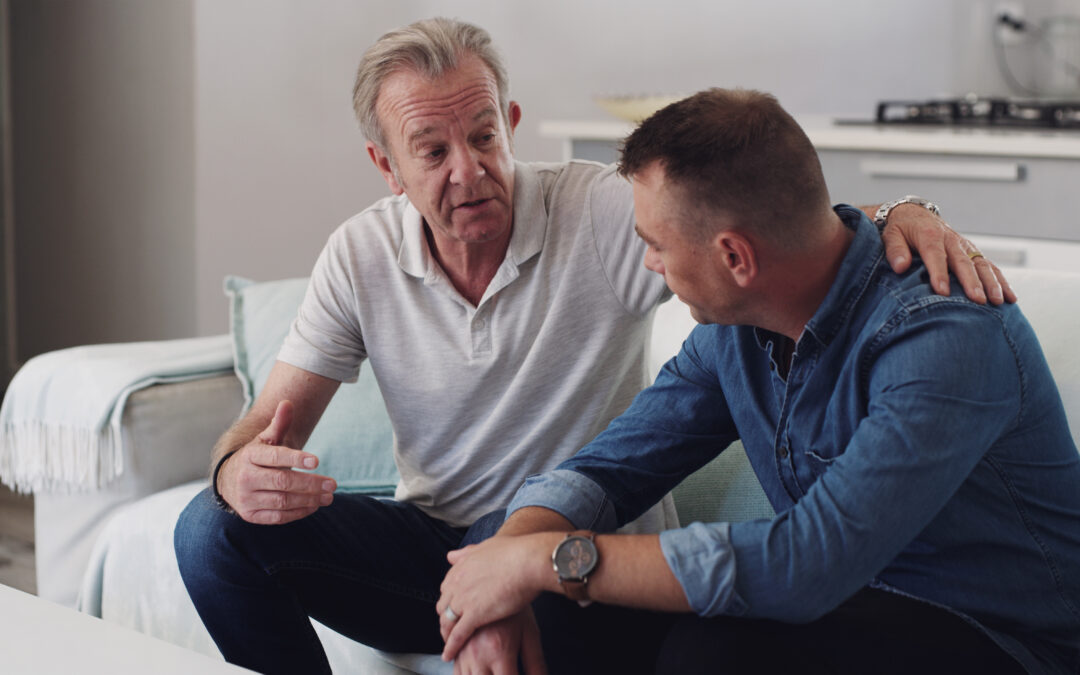Watching a loved one go through the enormously difficult process of addiction treatment and recovery is incredibly challenging. When they finally complete an addiction program, you want to celebrate their hard-won success and continue supporting them as they transition back to everyday life. But it can be difficult to know exactly what to say or do.
If you are unsure what you should or should not say to your loved one once they return home, understand that specific phrases and actions are encouraging and empowering for your loved one at this crucial stage. And there are others, though well-intentioned, that could undermine their progress and make their journey even harder.
The following are some tips to consider about what to say, what not to say, and how to best show your support as they readjust to life after treatment.
What to Say to Your Loved One
- Offer enthusiastic praise and let them know you recognize their tremendous effort, which helps build their confidence. For example, you could say, “I see how hard you are working, and I am so proud of you.”
- Make it clear that you understand their work is not over and that you will provide them with ongoing support throughout their recovery. You could say something like, “I know this may just be the beginning of your journey, and I’ll be here every step of the way.”
- It is fine to ask how you can be helpful, whether it is giving them space, assisting with errands or tasks, or removing potential temptations from their environment. Consider asking, “What can I do to make things easier for you as you settle back home?”
- Be straightforward with your expressions of love. Let them know you have faith in their ability to successfully pursue sobriety. Motivate them by saying, “I love and believe in you.”
What Not to Say to Your Loved One
- Addiction recovery is life-long, and acting as if your loved one is permanently cured minimizes the constant effort required and sets unrealistic expectations. Don’t say statements such as “You are cured.”
- Do not bring up past lapses or failures. This can shame them and reduce their confidence. Avoid negative statements such as: “Don’t screw this up like you have before.”
- Life will not automatically return to how it was, nor should it. Stating otherwise invalidates the massive personal growth and changes they’ve worked toward. Avoid saying, “Things will be exactly like before.”
What You Can Do When They Return Home
Once your loved one returns home, it is essential to be patient and avoid passing judgment. Your loved one can be easily overwhelmed, drained, or feel like they’re on an emotional rollercoaster. This is all perfectly normal. Make them feel accepted without criticism.
If they are looking for support, offer to attend a support group meeting, such as Alcoholics Anonymous (AA) or Narcotics Anonymous (NA), with them to learn more about addiction and the recovery process. This shows you’re willing to expand your understanding to relate better.
In addition, it is vital to remove any alcohol or substances from your home that could be potential triggers. Also, try to minimize unnecessary stressors in their first few weeks back.
Set boundaries around unacceptable behaviors to protect yourself while still offering compassion. For example, make it clear you won’t enable any alcohol or substance abuse, but you’ll be caring and non-judgmental if they simply speak honestly about any cravings or struggles.
Show interest in their recovery process, but don’t pry into personal details unless they choose to share. Let them have privacy and simply ask how they feel and wait for them to respond. This can open up dialogue and allow them to express themselves as they feel comfortable. Never pressure them to express themselves if they are not yet ready.
With empathy, patience, and open dialogue, you can create an environment that nurtures and supports your loved one’s sobriety rather than creating hostilities or unrealistic expectations.
If you or a loved one are struggling with a substance use disorder and need help, Twin Lakes Recovery Center in Monroe, Georgia, offers programs and services to put you on the path to a lasting recovery. To learn more about what we have to offer, please contact us today.




